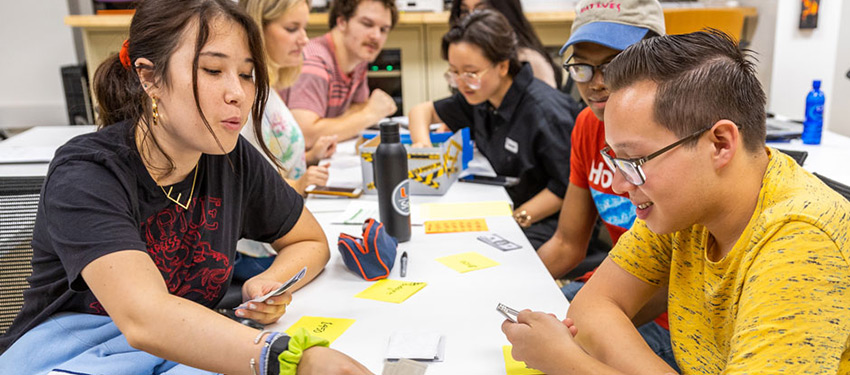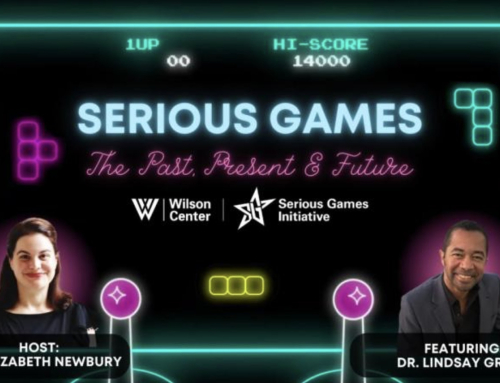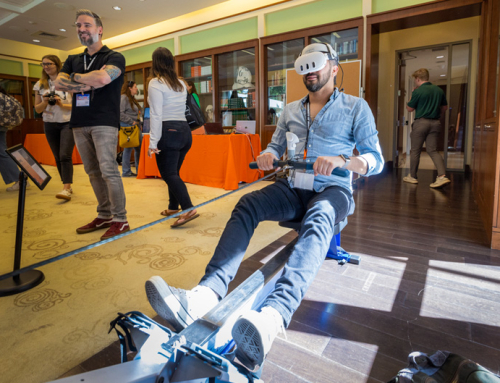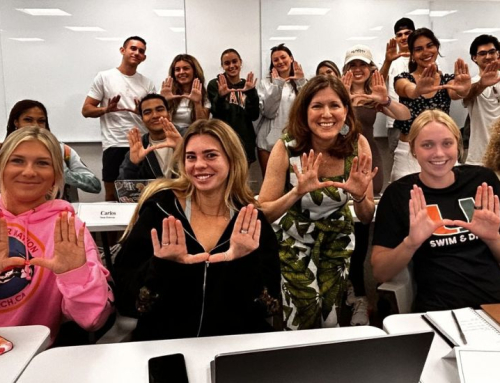The last place one might expect to learn a life lesson or two from is a video game.
But in the New Experience Research and Design Lab (NERDLab) at the University of Miami School of Communication, an accomplished pair of professors, Clay Ewing and Lien Tran, have been creating interactive social impact experiences including games that attempt to affect the learner’s perspective about a particular social issue.
“Games are an abstraction of the real world,” said Tran, assistant professor and co-director of the NERDLab. “There’s storytelling; a narrative; and roleplaying. Not in every case, but in many cases and that is what going to get people to understand the issue that you are trying to communicate through your game.”
Since 2014, the NERDLab has become a program for interactive media students and others to collaborate with faculty on various projects. Ewing, an associate professor in the Department of Cinema and Interactive Media, said he created the hub for resources alongside Tran because his students wanted more hands-on experience.
The lab’s goal is to provide students with real world application for the projects that they are working on, which in some cases is different than the work that they do in the classroom.
“What we really want is to have students be a part of this so that they can go deep within their projects, more so than they would with a semester-long project,” said Ewing, who serves as a mentor to help students mold their skills in graphic design and programming. “Alumni Brandon Wilson, Rebekah Monson, and Pablo Obando were our inaugural cohort. They really pushed for more experiences in game design that was led by professionals.”
At UM, the Interactive Media program aims to prepare a new generation of innovators and leaders in the growing field of interaction design. The world of gaming is changing each day as game makers diversify and bring their passions to the design process.
UM graduate student and NERDLab member Laura Miller specializes in user experience (UX), or the process of enhancing the customer satisfaction by improving ease of use and user interface design as the implementation of the presentation of a product.
“I have my bachelors in graphic design, but I realized that the work that I was doing didn’t feel rewarding and that I wasn’t making an impact,” said Miller, who stumbled upon the Interactive Media program application on the day it was due. “I could see that the work that Clay and Lien do is able to impact others and I want to be able to help others.”
During her first semester at UM, Miller took Tran’s designing innovation course. There she and her peers were challenged to make a game that would potentially end a food desert, an area that has limited access to affordable and nutritious food. This, coupled with her passion for human rights, instantly inspired her to continue pursuing a career in social impact game design.
“I think that there is going to be more of a push for social impact games in this generation,” Miller said, referring to millennials. “We really care about the environment and issues in general that impact others.”
Video and tabletop games are more frequently becoming a catalyst for social change. Tran explains it as allowing players to physically be in their safe spaces while potentially making “dangerous choices.” A game she created called Cops and Rubbers provides users with an interactive simulation tabletop game that was later adapted into an online game to advocate against the criminalization of condoms.
“Luckily, you don’t have to expose yourself to these risks in real life, but you’re able to put yourself in that person’s shoes by having those cognitive debates,” said Tran, who believes games like this one could be used for sensitivity training with politicians and law enforcement.
Ewing is proud of the work that is being done within the lab and looks forward to the future of game design growing at UM and greater Miami.
“I think the idea of being sourced by a university is just amazing,” said Ewing. “We get to experiment like crazy. We get to try all these new things and just see how it works.”
The ideas and projects birthed in the NERDLab could be the social impact needed for tomorrow. Ewing and Tran feel fulfilled to be influencing and collaborating with students who are passionate about social justice issues.
“Games are an easy way to start up the conversation,” said Miller. “Tech is exploding at this point. I think eventually we will get to a point where it’s a part of our daily lives.”






